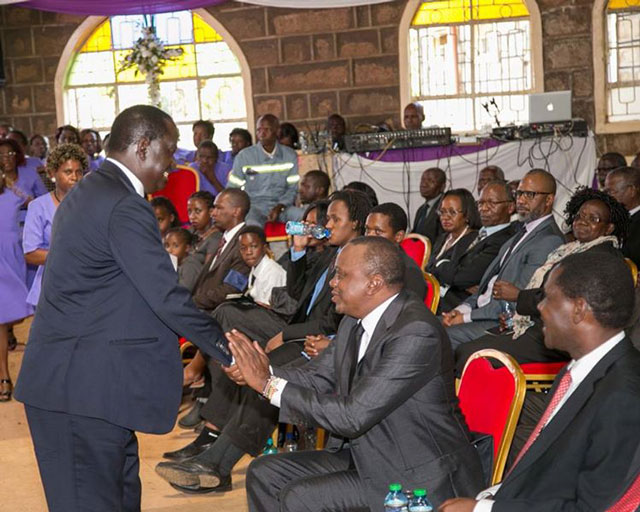
Nairobi, Kenya | AFP | Kenya’s election commission announced Tuesday that there would be five million new voters taking part in August polls, raising the stakes for incumbent Uhuru Kenyatta and his longtime rival Raila Odinga.
After the first-ever audit of the voter’s register — often seen as a key point at which an election can be rigged — the election commission (IEBC) announced a final list of 19.6 million voters.
“Comparatively, the register of voters has increased by 36 percent (5,222,642 voters) since 2013,” IEBC chairman Wafula Chebukati said in a statement.
During the audit, 88,602 deceased voters were removed from the list, however the KPMG audit firm said in a report earlier this month that there may still be around one million dead voters on the list.
KPMG said many detailed death records were not provided by the Civil Registration Department (CRS), and also bemoaned the lack of reliable data on deceased persons.
“We are aware that the register of voters cannot be completely rid of deceased persons. However, we are confident that the (election) technology provides foolproof authentication on election day and there will be no room for mischief,” said the IEBC statement.
Kenya’s vote for a president and lawmakers on August 8 is set to be a hard-fought election decided in large part along ethnic lines, with coalitions between different tribes crucial to winning enough votes.
Kenyatta is seen as the favourite in his run for a second term, however he is facing an unprecedented challenge from a united opposition.
His longtime rival Odinga, 72, is holding the ticket for the National Super Alliance (NASA) which banded together five main opposition leaders.
Six other candidates from smaller parties are taking part.
Odinga has lost three previous elections, in 1997, 2007 and 2013 — a bad-tempered and disputed poll in which he fell short of victory by 800,000 votes.
This year’s vote comes a decade after a disputed poll between Odinga and former president Mwai Kibaki, which sparked two months of politically motivated tribal violence that left over 1,100 dead.
During the subsequent largely peaceful poll in March 2013, a host of hi-tech safeguards — including a biometric voter registration system — failed on the day leading many to doubt Kenyatta’s victory, and the ability of the commission to deliver a credible election this year.
Kenyatta and Odinga are from bitterly competing political dynasties in Kenya: their fathers Jomo Kenyatta and Jaramogi Oginga Odinga were rivals in the independence era and the decades that followed.
The rivalry reflects tribal divisions in Kenya with Odinga’s Luos commonly complaining that Kenyatta’s Kikuyu community has monopolised power for its own gain.
#Kenyatta puts jobs, industrialisation at top of Jubilee agenda for next 5 years https://t.co/xDYzWzEsuI pic.twitter.com/4izbg1X6Na
— The Independent (@UGIndependent) June 27, 2017
Odinga releases ‘Roadmap to Canaan’ NASA manifesto #Kenya #politics https://t.co/8YpJPc28XI pic.twitter.com/oSiT3XKRrn
— The Independent (@UGIndependent) June 28, 2017
 The Independent Uganda: You get the Truth we Pay the Price
The Independent Uganda: You get the Truth we Pay the Price





